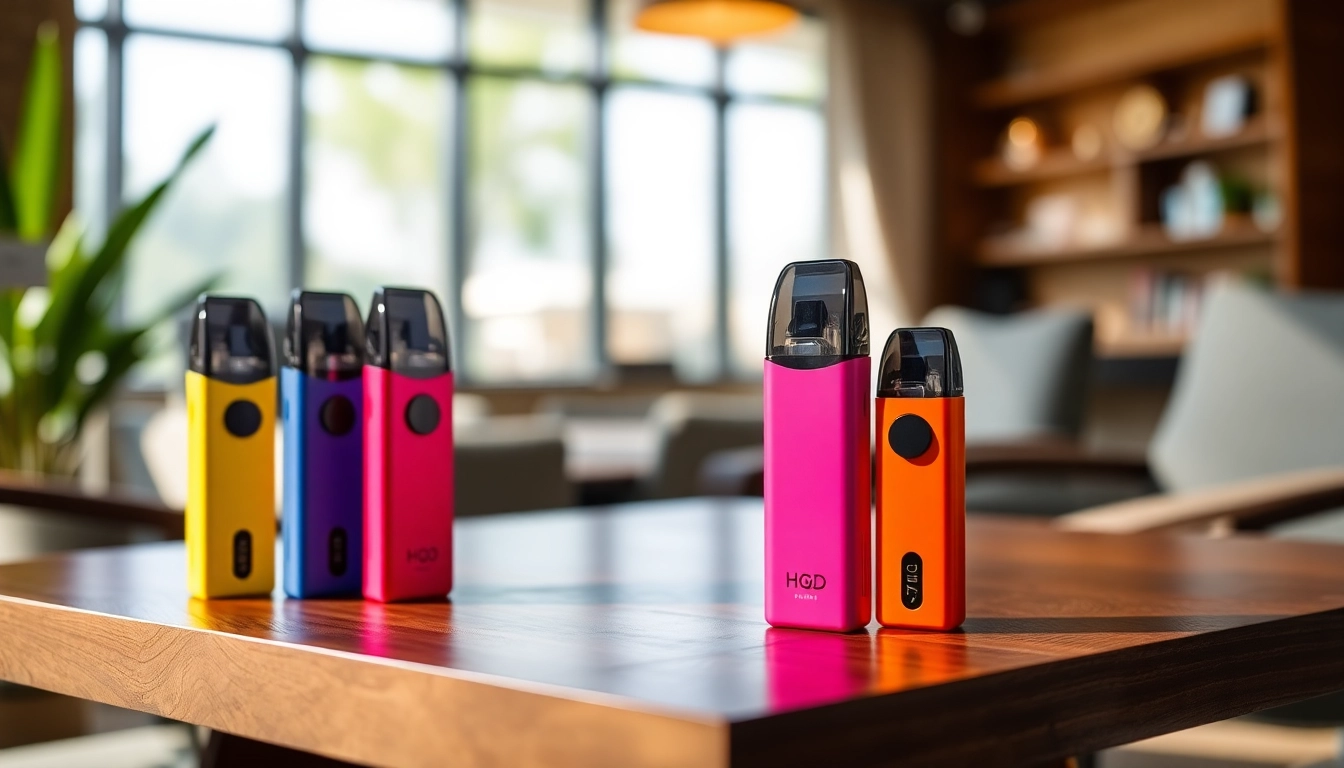Understanding Wholesale CBD Edibles Market Trends
The wholesale CBD edibles market has garnered significant attention in recent years due to the rising interest in the health benefits associated with cannabidiol (CBD). As the demand for these products expands, business owners and investors need to stay informed about current market trends to effectively navigate this dynamic landscape. This guide will delve into the complexities of the wholesale CBD edibles market, exploring key trends, quality supplier identification, marketing strategies, challenges, and essential metrics for measuring success.
Current Demand for Wholesale CBD Edibles
The demand for wholesale CBD edibles is primarily driven by the growing acceptance of cannabis-derived products and an increase in consumer awareness regarding the potential health benefits of CBD. From gummies and chocolates to beverages and baked goods, CBD edibles offer a versatile way for consumers to incorporate CBD into their diets. Additionally, the convenience of pre-measured doses in edible form appeals to those who may be hesitant about oils or tinctures.
As more research substantiates the therapeutic properties of CBD, such as its potential to alleviate anxiety, reduce inflammation, and improve sleep quality, consumers are actively seeking these products. This trend is reflective of a broader shift in public perception surrounding cannabis products, positioning wholesale CBD edibles as a lucrative opportunity for businesses looking to enter the market. For further insights into sourcing these products, consider exploring wholesale cbd edibles.
Key Players in the Wholesale CBD Edibles Supply Chain
The supply chain for wholesale CBD edibles involves multiple stakeholders, each playing a critical role in product quality and availability. Key players include:
- Raw Material Suppliers: These are typically hemp farmers specializing in the cultivation of high-CBD hemp strains. The quality of raw materials significantly impacts the final product.
- Manufacturers: Companies processing hemp into various edible forms, adhering to industry regulations and ensuring product safety.
- Wholesalers and Distributors: Entities responsible for purchasing products in bulk and distributing them to retailers, easing the logistics of product delivery.
- Retailers: Businesses selling CBD edibles directly to consumers, whether brick-and-mortar stores, online shops, or specialty stores.
Understanding the dynamics and relationships between these key players is essential for businesses to ensure a reliable supply of high-quality wholesale CBD edibles.
Regulatory Considerations Affecting Wholesale CBD Edibles
The regulatory environment surrounding CBD products is ever-evolving. Laws can vary significantly from state to state, significantly influencing the wholesale CBD edibles market. In many regions, businesses must comply with the Federal Food, Drug, and Cosmetic Act, while also adhering to local regulations regarding labeling, marketing, and product formulations.
These regulations may include limits on the amount of THC (tetrahydrocannabinol) permissible in products, as well as requirements for third-party testing to verify the purity and potency of CBD edibles. Failure to comply can lead to legal repercussions and significant losses for businesses, making it crucial for companies to stay updated on relevant laws and advocate for responsible regulations that benefit the industry as a whole.
Identifying Quality Wholesale CBD Edibles Suppliers
In a crowded market, ensuring a consistent supply of quality products is imperative for success. Here, we explore how to identify reputable wholesale CBD edibles suppliers, enabling businesses to establish reliable partnerships.
Evaluating Supplier Certifications and Compliance
When searching for suppliers, it is essential to evaluate their certifications and compliance with state and federal regulations. Look for suppliers with:
- GMP Certification: Good Manufacturing Practices (GMP) certification indicates that the supplier adheres to stringent quality control standards, thus ensuring the safety and consistency of their products.
- Third-Party Lab Testing: Reputable suppliers will provide certificates of analysis (COAs) that demonstrate their products have been independently tested for potency and contaminants.
- Organic Certification: Suppliers offering organic CBD edibles can appeal to health-conscious consumers seeking products free from pesticides and harmful chemicals.
Due diligence in evaluating these certifications helps businesses choose reliable suppliers confidently.
Assessing Product Quality and Transparency
Quality is paramount in the CBD industry, and verifying the quality of wholesale CBD edibles should be a top priority. Assess product quality by examining factors such as:
- Ingredients: Use of natural, non-GMO ingredients is preferable, as they resonate with the health-oriented consumer base.
- Production Processes: Understanding the manufacturing process can give insights into product integrity and transparency.
- Customer Reviews: Engaging with customer feedback can provide a clearer picture of product performance and satisfaction.
By taking steps to carefully assess product quality and supplier transparency, businesses can build consumer trust and satisfaction.
Building Relationships with Wholesale CBD Edibles Suppliers
Establishing strong relationships with suppliers will not only enhance the reliability of the supply chain but can also foster collaboration in product development and marketing. Consider these strategies:
- Open Communication: Encourage regular dialogue with suppliers to discuss product updates, market trends, and joint ventures.
- Networking: Attend industry events and conferences to meet potential suppliers and cultivate professional relationships.
- Feedback Loops: Provide feedback to suppliers to help them understand your evolving needs and enhance product offerings accordingly.
These collaborative efforts can result in a more resilient supply chain and mutual growth opportunities.
Effective Marketing Strategies for Wholesale CBD Edibles
Once businesses have established a reliable supply chain for wholesale CBD edibles, the next step is to market these products effectively. Marketing in this niche can be uniquely challenging due to regulatory restrictions and consumer skepticism. Here are proven strategies to boost visibility and drive sales.
Target Audiences for Wholesale CBD Edibles
Understanding the target audience is crucial for effective marketing. Key demographics include:
- Health-Conscious Individuals: Consumers seeking natural alternatives for wellness and self-care often gravitate toward CBD edibles.
- Millennials and Gen Z: These generations are more accepting of cannabis-derived products and may be more likely to try new offerings.
- Individuals with Specific Health Conditions: Many consumers use CBD for its potential therapeutic benefits, targeting specific ailments such as anxiety and chronic pain.
Tailoring marketing messages to resonate with these segments can enhance engagement and drive sales.
Promotional Tactics to Boost Sales of Wholesale CBD Edibles
In a competitive marketplace, leveraging various promotional tactics can maximize sales of wholesale CBD edibles. Effective strategies might include:
- Sampling Programs: Offering samples allows consumers to try products before committing to a purchase, reducing the perceived risk.
- Discounts and Loyalty Programs: Incentives, such as introductory discounts or loyalty rewards, encourage repeat purchases and foster brand loyalty.
- Educational Content Marketing: Creating informative content that addresses common consumer questions about CBD can position the brand as a knowledgeable authority while driving organic traffic.
Utilizing a mix of these promotional tactics can help bring visibility and encourage consumer adoption of wholesale CBD edibles.
Leveraging Social Media for Wholesale CBD Edibles Visibility
Social media platforms offer a powerful avenue for promoting wholesale CBD edibles. However, businesses must navigate ethical marketing practices in a regulated industry. Here are methods to consider:
- Engaging Content Creation: Develop creative posts that showcase products through visually appealing photos and engaging videos that tell a brand story.
- Influencer Partnerships: Collaborating with influencers who share similar values can amplify product reach and tap into their established audience.
- Community Building: Encouraging dialogue within social media communities fosters customer loyalty and a sense of belonging among consumers.
By embracing social media thoughtfully, businesses can enhance their presence and cultivation of potential customers.
Challenges in the Wholesale CBD Edibles Sector
The fast-evolving landscape of the wholesale CBD edibles market comes with distinct challenges. Understanding and proactively addressing these obstacles is essential for maintaining a competitive edge.
Navigating Market Saturation for Wholesale CBD Edibles
As increasing numbers of companies enter the wholesale CBD edibles market, saturation can make it challenging to stand out. Businesses must focus on differentiation through:
- Unique Product Offerings: Develop innovative flavors, formulations, or health-targeted products that set your brand apart from competitors.
- Quality Assurance: Prioritizing product quality and transparency can distinguish a brand as a trusted source among discerning consumers.
- Strong Branding: Build a cohesive and compelling brand identity that resonates with your target audience and instills confidence in their buying decisions.
By proactively addressing market saturation, businesses can sustain growth and thrive in a competitive environment.
Addressing Consumer Misconceptions about CBD
Despite the increasing acceptance of CBD, many consumers still harbor misconceptions. Common misbeliefs include confusion over legal status, THC content, and perceived side effects. Businesses can combat these misconceptions through tailored education efforts such as:
- Clear Educational Resources: Provide comprehensive materials clarifying common misconceptions and regulatory status.
- Customer Engagement: Foster open communication, addressing concerns directly while educating consumers about product benefits.
- Community Events: Hosting informational workshops or events helps inform consumers while establishing brand credibility.
Addressing these misconceptions proactively can cultivate a more informed consumer base and drive acceptance of wholesale CBD edibles.
Managing Supply Chain Issues for Wholesale CBD Edibles
Supply chain issues remain a common challenge in the wholesale CBD edibles sector, fueled by volatility in raw material availability, transportation disruptions, and fluctuating regulations. To mitigate these risks, businesses can:
- Diverse Sourcing: Build relationships with multiple suppliers to reduce reliance on a single source and ensure stable access to raw materials.
- Inventory Management: Implement efficient inventory tracking systems to optimize stock levels and avoid over/under-supply situations.
- Adaptability: Stay informed on regulatory changes and industry trends to prepare for market shifts.
By proactively managing these supply chain challenges, businesses can enhance operational efficiency and sustain product availability.
Measuring Success in the Wholesale CBD Edibles Business
To ensure long-term success in the wholesale CBD edibles market, it is crucial for businesses to establish and monitor performance metrics. Understanding these key performance indicators (KPIs) allows companies to adapt strategies effectively and optimize growth.
Key Performance Indicators for Wholesale CBD Edibles Sales
Identifying and analyzing relevant KPIs can provide insights into the health of the business. Key indicators may include:
- Sales Volume: Tracking total sales volume provides a clear picture of market demand and business growth over specific periods.
- Customer Acquisition Cost (CAC): Determining the cost of acquiring new customers helps assess marketing efficiency.
- Return on Investment (ROI): Evaluating the ROI of different marketing campaigns aids in identifying effective strategies and reallocating resources.
Regularly monitoring these KPIs enables businesses to make data-driven decisions that support profit maximization and overall growth.
Customer Feedback and Market Adaptation
Customer feedback plays an essential role in shaping product offerings and marketing strategies. To maximize value, businesses should:
- Conduct Surveys: Regularly gather customer feedback through surveys or questionnaires to gauge market perceptions.
- Monitor Reviews: Keep an eye on customer reviews and comments, using them as insights for product development and improvement.
- Responsive Action: Act on feedback by making necessary adjustments to product formulations or marketing strategies, demonstrating a commitment to customer satisfaction.
Emphasizing customer feedback can guide businesses in evolving to meet market demands effectively.
Analyzing Competitor Strategies in Wholesale CBD Edibles
Understanding competitor strategies provides valuable insights that can inform your approach to the wholesale CBD edibles market. Key actions include:
- Market Research: Conduct thorough market research to identify successful tactics utilized by competitors and valid lessons derived from their experiences.
- Product Comparison: Analyze your products in comparison to competitors, looking for gaps that can be filled or areas for improvement.
- Trend Observation: Stay informed on new product launches, marketing campaigns, and consumer response within the industry to remain competitive.
By leveraging insights from competitor analysis, businesses can strategize effectively to improve their positioning in the wholesale CBD edibles market.



